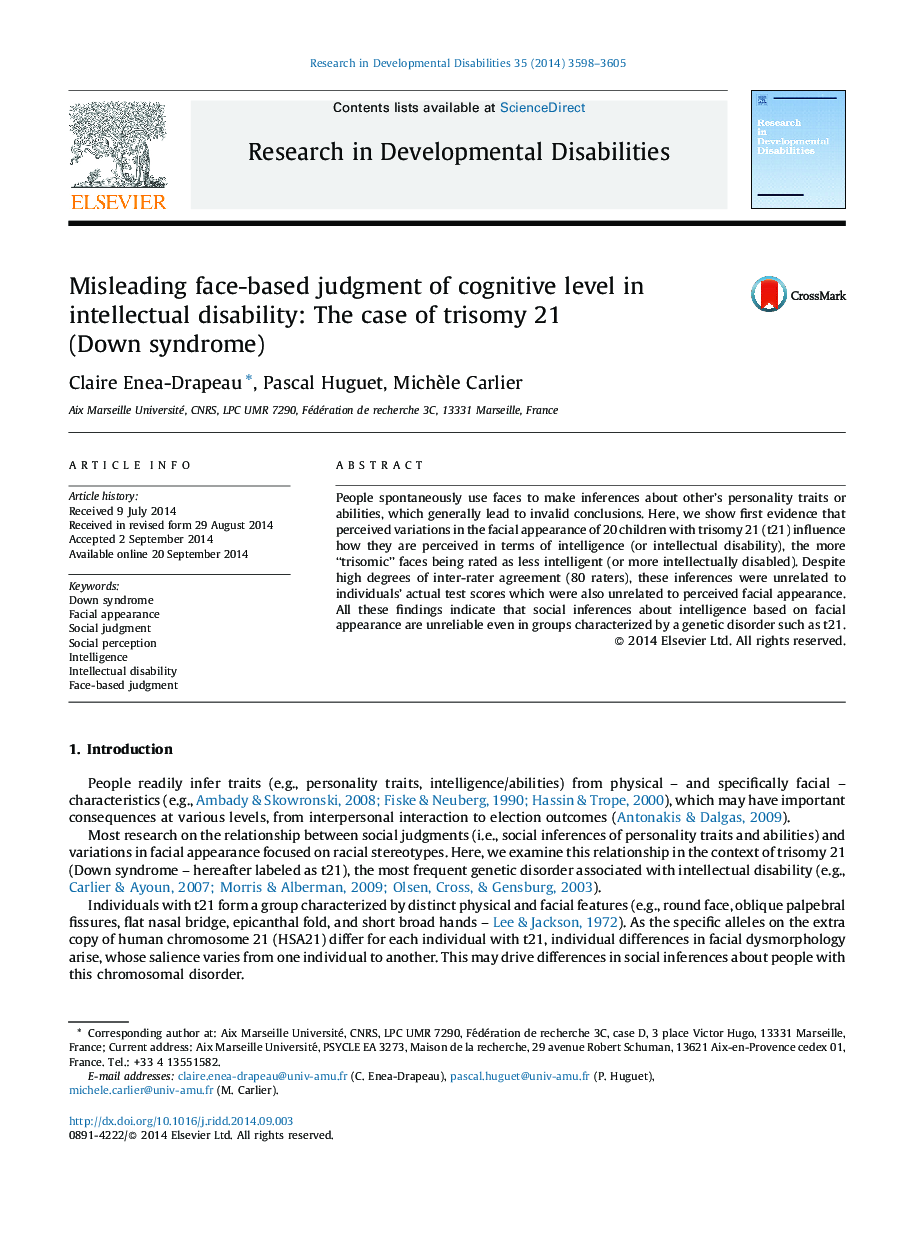| Article ID | Journal | Published Year | Pages | File Type |
|---|---|---|---|---|
| 10317477 | Research in Developmental Disabilities | 2014 | 8 Pages |
Abstract
People spontaneously use faces to make inferences about other's personality traits or abilities, which generally lead to invalid conclusions. Here, we show first evidence that perceived variations in the facial appearance of 20 children with trisomy 21 (t21) influence how they are perceived in terms of intelligence (or intellectual disability), the more “trisomic” faces being rated as less intelligent (or more intellectually disabled). Despite high degrees of inter-rater agreement (80 raters), these inferences were unrelated to individuals' actual test scores which were also unrelated to perceived facial appearance. All these findings indicate that social inferences about intelligence based on facial appearance are unreliable even in groups characterized by a genetic disorder such as t21.
Keywords
Related Topics
Life Sciences
Neuroscience
Behavioral Neuroscience
Authors
Claire Enea-Drapeau, Pascal Huguet, Michèle Carlier,
